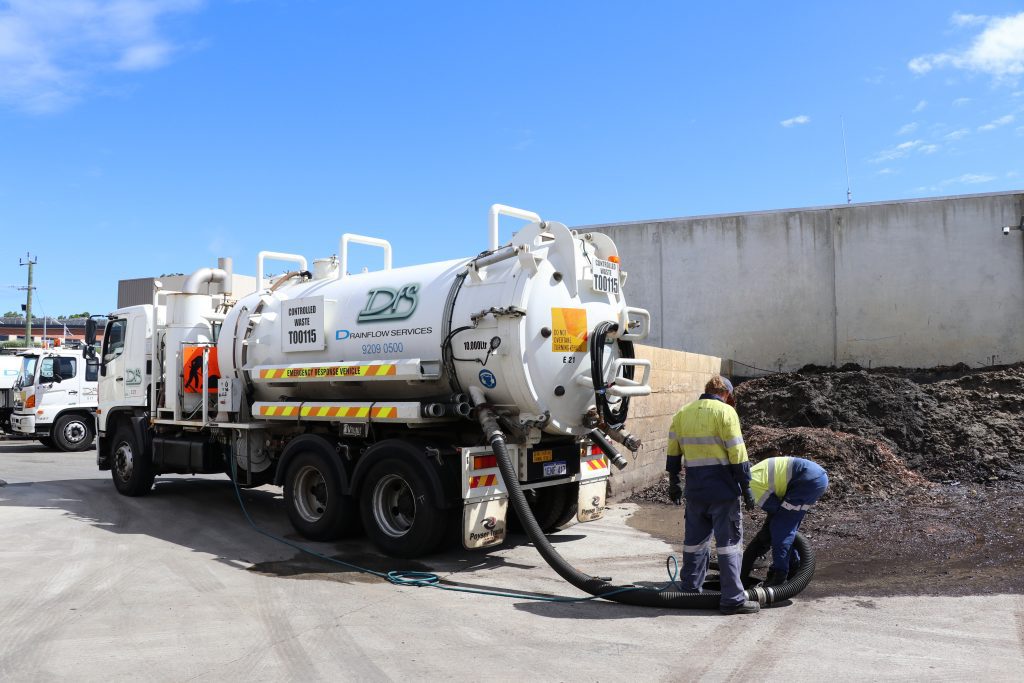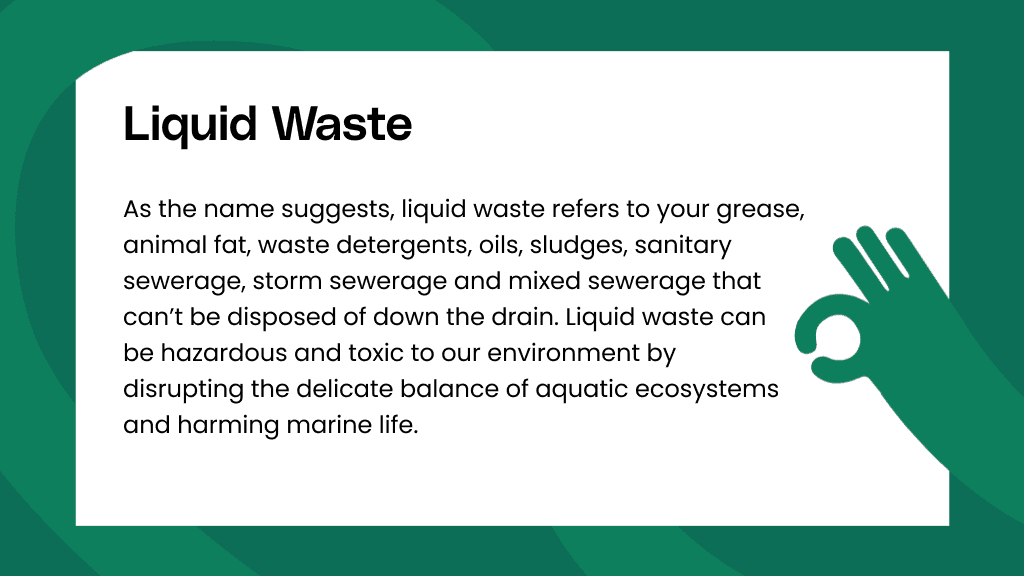The Main Principles Of Reclaim Waste
The Main Principles Of Reclaim Waste
Blog Article
Some Of Reclaim Waste
Table of ContentsReclaim Waste for DummiesReclaim Waste for BeginnersWhat Does Reclaim Waste Do?The Main Principles Of Reclaim Waste Not known Facts About Reclaim Waste
Check out the kinds, incidents, and forms of liquid waste. Domestic sewer waste refers to the waste and products from a domestic septic system. This kind of waste is developed by human beings in residences, institutions, and other structures. This only includes septic systems that have a drainpipe area. The proper management and disposal of residential sewer waste need liquid waste to be transferred to a sewer therapy plant where the correct techniques and devices are related to cleanse and dispose of waste.
Commercial waste commonly includes possible risks, such as combustible materials or a mix of liquid and strong waste products, and requires a much more advanced and thorough disposal procedure. The disposal of commercial waste generally includes the purification of waste prior to transport to guarantee risk-free and proper disposal. Hazardous waste is developed from results and runoff of industrial processes and production.
This kind of waste can not use the exact same sewer administration transportation or processes as septic or business fluids. The hazardous waste monitoring process needs the assessment and screening of fluid waste prior to it undertakes the disposal procedure (liquid waste disposal). Runoff waste is the fluid waste that comes from drainage and excess stormwater in highly booming locations or cities
Drainage waste can create contamination and flooding if not taken care of properly. Ensuring correct waste administration can protect against catastrophes and decrease ecological harm.
Not known Details About Reclaim Waste
Get in touch with PROS Providers today to discover our waste administration and disposal solutions and the proper methods to take care of the fluid waste you produce.
(https://fliphtml5.com/homepage/kekhp)Do you know what happens to your water when you disengage, purge the toilet or drain pipes the washing equipment? No? Well, it's worth knowing. This so-called 'wastewater' is not only a crucial resource however, after therapy, will be released to our land, rivers or the ocean. Used water from commodes, showers, baths, kitchen sinks, washings and industrial procedures is called wastewater.

water utilized to cool equipment or clean plant and tools). Stormwater, a type of wastewater, is runoff that moves from farming and city areas such as roofs, parks, gardens, roadways, paths and rain gutters right into stormwater drains pipes, after rainfall. Stormwater flows untreated directly to neighborhood creeks or rivers, eventually reaching the ocean.
The Greatest Guide To Reclaim Waste
In Queensland, the majority of wastewater is treated at sewage treatment plants. Wastewater is moved from domestic or industrial sites via a system of drains and pump stations, called sewerage reticulation, to a sewage treatment plant. Local governments develop, preserve and operate most sewer treatment plants. Operators are accredited under the Environmental Management Act 1994 to discharge cured wastewater at an appropriate environmental requirement into rivers.
The Department of Natural Resources recommends city governments concerning managing, operating and preserving sewerage systems and treatment plants. In unsewered locations, neighborhood federal governments may need householders to install specific or family sewage treatment systems to treat residential wastewater from bathrooms, kitchen areas, shower rooms and laundries. The Division of Natural Resources authorizes making use of family systems when they are verified to be reliable.
A lot of stormwater gets no therapy. In some new class, treatment of some additional hints stormwater to eliminate litter, sand and crushed rock has started utilizing gross pollutant catches. Wastewater therapy happens in 4 stages: Gets rid of strong issue. Bigger solids, such as plastics and other items wrongly released to sewers, are eliminated when wastewater is gone through displays.
Makes use of tiny living organisms understands as micro-organisms to break down and eliminate staying liquified wastes and fine bits. Micro-organisms and wastes are included in the sludge.
Some Of Reclaim Waste
Nutrient removal is not offered at all sewage treatment plants due to the fact that it calls for expensive specialist devices. Clear liquid effluent generated after therapy may still include disease-causing micro-organisms - liquid waste disposal melbourne.

Many wastewater moves into the sewerage system. Under the Act, local governments provide authorizations and permits for environmentally pertinent activities (Ages) including wastewater launches that might have a local impact.
Not known Details About Reclaim Waste
Or else, examples are considered research laboratory evaluation. Typically many tests are required to establish the degrees of each of the various pollutants such as oils, heavy metals and pesticides in water. Surveillance provides factual info concerning water top quality and can validate that permit problems are being met. The details obtained with tracking supplies the basis for making water high quality choices.
Report this page